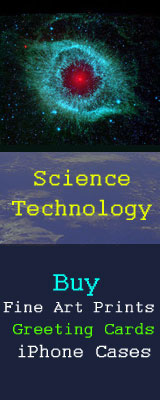.
Michael Francis Atiyah
Sir Michael Francis Atiyah, OM, FRS (b. April 22, 1929) is a Lebanese-British mathematician, widely considered one of the greatest geometers of the 20th century. His path-breaking work with Isadore Singer led to the proof of the Atiyah-Singer index theorem in the 1960s, a result that has helped to pave the way for the development of several branches of mathematics since that time.
He had also founded, earlier and together with Friedrich Hirzebruch, the study of another major tool in algebraic topology: topological K-theory. It was inspired by Alexander Grothendieck's work on generalising the Riemann-Roch theorem, and has since generated algebraic K-theory and many applications to mathematical physics.
Biography
Atiyah was born in Hampstead, London [1] to a Scottish mother and Lebanese Arab writer Edward Atiyah. Patrick Atiyah, professor of law, is his brother [2]. He was brought up mostly in Cairo, Egypt, and the Sudan. He later went to Manchester Grammar School and then Trinity College, Cambridge. He was a student of W. V. D. Hodge at Cambridge, where he was awarded a doctorate in 1955 for a thesis entitled Some Applications of Topological Methods in Algebraic Geometry. He was one of the founders, with Hirzebruch, of topological K-theory, a branch of algebraic topology. He has collaborated with many other mathematicians, for example with Raoul Bott and Isadore Singer on the Atiyah–Bott fixed-point theorem and related developments leading to the Atiyah-Singer index theorem. This led to work in representation theory, and on the heat equation on manifolds. His later research on gauge field theories, particularly Yang-Mills theory, stimulated important interactions between geometry and physics, most notably in the work of Edward Witten.
Atiyah's many students include Simon Donaldson, Nigel Hitchin, Peter Kronheimer, Graeme Segal, George Lusztig, Jack Morava, Frances Kirwan, Lisa Jeffrey and Ruth Lawrence.
Career
Atiyah rejuvenated British mathematics during his years at Oxford and Cambridge. He was also one of the driving forces behind the creation of the Isaac Newton Institute for Mathematical Sciences in Cambridge and became its first director. He received the Royal Medal of the Royal Society in 1968 and its Copley Medal in 1988. He served as president of the London Mathematical Society (1974 - 1976). In the 1990s, he has been president of the Royal Society, and master of Trinity College, Cambridge.
Atiyah was also active on the international scene. He has served as president of the Pugwash Conferences on Science and World Affairs. He was responsible for the founding of the InterAcademy Panel on International Issues, a global network of the world's scientific academies which aims to help its member academies to shape public policy in areas related to science. He also instigated the formation of the Association of European Academies (ALLEA), and has played an important role in the shaping of today’s European Mathematical Society (EMS).
Atiyah is now retired and an honorary professor at the University of Edinburgh. He served as Chancellor of the University of Leicester between 1995 and 2005, from where he received a Distinguished Honorary Fellowship in 2007. He has also been professor of mathematics at the Institute for Advanced Study in Princeton, New Jersey. Atiyah has been the president of the Royal Society of Edinburgh since 2005.
Awards and honours
In 1966, when he was thirty-seven years old, he was awarded the Fields Medal, for his work in developing K-theory, a generalized Lefschetz fixed-point theorem (jointly with Raoul Bott) and the Atiyah-Singer theorem, for which he also won, in 2004, the Abel Prize jointly with Isadore Singer.
Among the other prizes he has received are the Feltrinelli Prize from the Accademia Nazionale dei Lincei (1981) and the King Faisal International Prize for Science (1987).
Atiyah was knighted in 1983 and made a member of the Order of Merit in 1992.
He is listed as a Distinguished Supporter of the British Humanist Association.
In 2004 he was awarded the Abel Prize for mathematics jointly with Isadore M. Singer from MIT.
His Erdős number is 3, via a chain of collaborations involving Laurel A. Smith and Persi Diaconis. He is a foreign member of the Russian Academy of Sciences.
Books
* Siamo tutti matematici, Di Renzo Editore, Roma, 2007
References
1. ^ GRO REgister of Births: JUN 1929 1a 825 HAMPSTEAD - Michael F. Atiyah, mmn = Levens
2. ^ Family
* Sir Michael Atiyah video at the Peoples Archive
* O'Connor, John J; Edmund F. Robertson "Michael Atiyah". MacTutor History of Mathematics archive.
* Michael Atiyah at the Mathematics Genealogy Project
* Atiyah, Michael (2005). Michael Atiyah: Collected works (6 volumes). Oxford: OUP. ISBN -13: 9780198520948.
* Fields medal citation: Cartan, Henri (1968). "L'oeuvre de Michael F. Atiyah". Proceedings of International Conference of Mathematicians (Moscow, 1966): 9-14, Izdatyel'stvo Mir, Moscow.
* Abel prize citation (2004) [1]
Retrieved from "http://en.wikipedia.org/"
All text is available under the terms of the GNU Free Documentation License


